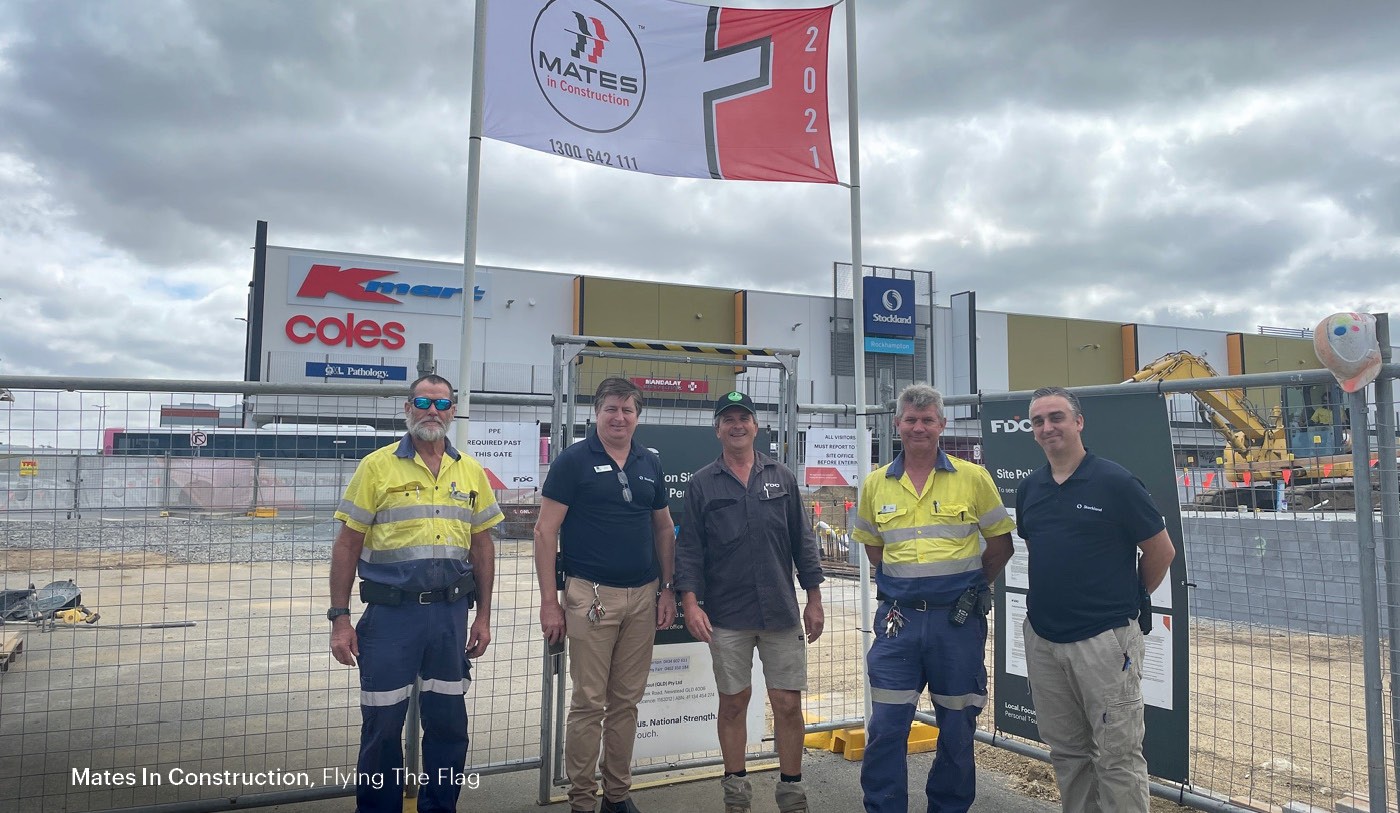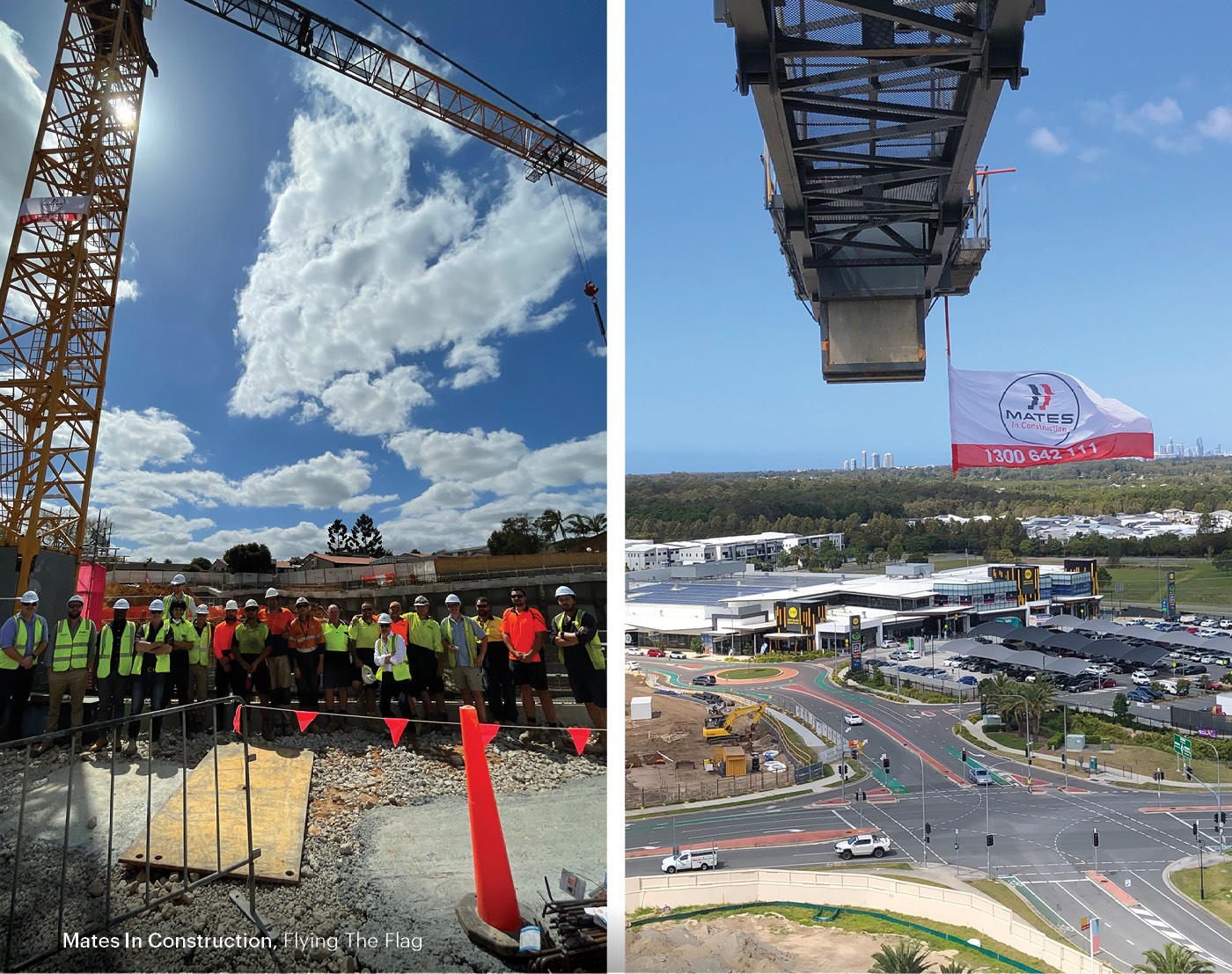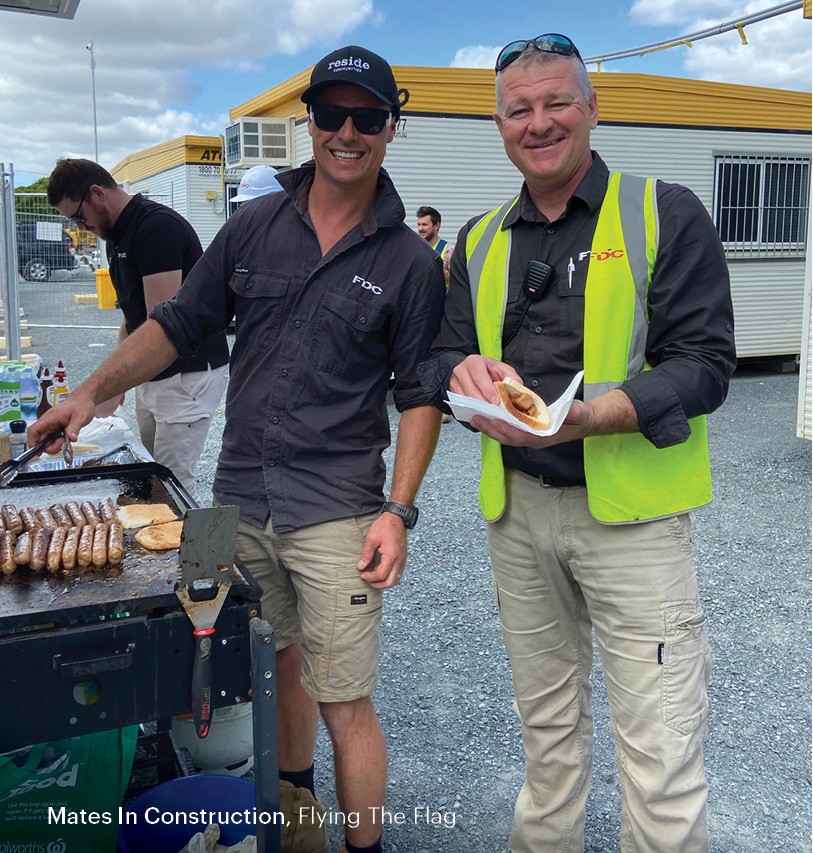Today we are proud tier one partners of MATES. As leaders in construction, we believe it’s our responsibility to contribute to a meaningful solution to an industry-wide issue. We want to make sure that our people have the skills, resources, and support to manage their mental health. So, we’ve partnered with MATES to help facilitate important conversations and maintain a supportive and open environment at FDC.
The root of the issue
Construction workers often lack mental health awareness – likely because they find it difficult to discuss their feelings at work.[2]
This combined with societal issues (like socioeconomic positioning) and personal problems can have profound effects on mental health.
“Sadly, it gets to a point where workers who have mental health problems are thinking about taking their lives because they can’t see another way out,” says Chris Lockwood from MATES.
The MATES network
An industry problem needs an industry-led solution – that’s why MATES empowers the workforce to tackle this issue with their own hands. The organisation has created a network of mates on every site they’ve visited, educating, connecting, and supporting everyone along the way.
To Neal Smith (FDC HSEQ Manager, QLD) mental health training and awareness is even more important than the standard first aid courses.
“All the guys and girls on site and in the office are first aid trained, so they can put a band aid on someone, or they know what to do in the event of an emergency – this is still first aid, it’s just for emotions and the mind, which are often overlooked,” said Neal.
So in 2019 he organised a general awareness training session through MATES for our Queensland team. Another round of training is currently being organised to maintain these skills, and also offer those that weren’t able to participate and can see the benefits, a chance to get on board.
“It was emotional and confronting but the overarching feeling is just how rewarding it was – there were 22 people in the room and about 10 of them put their hand up for further training. And I think that speaks volumes,” said Neal.
And support doesn’t end there. MATES trained a number of FDC site workers to become Connectors – internal staff who can confidentially support anyone at any time on site and connect them to the experts.
Today, FDC has rolled out the MATES programs across New South Wales and Queensland, and commencing activities in South Australia, Western Australia and the ACT and has a total of 52 active and trained Connectors.
“We put scaffolding up so people can do their job safely. We run mental health programs for the same reason. You just can’t put a price on the positive knock-on effects,” said Neal.
“Thanks to the training, I have the confidence to ask someone who doesn’t seem well if they’re OK – or if they’re having suicidal thoughts.”
“Unlike standard first aid, its easy to see when someone has a physical injury and you can treat with the skills from your course, but when someone has something going on with their mental state the symptoms are not always visible. This training provides skills to assist in identifying when someone is NOT ok, which has happened numerous times since our team has undertaken this training.”
FDC’s network of mates is backed by a team of case managers and the 24/7 MATES helpline, supporting workers who need access to ongoing help. And MATES’ programs give our teams important mental health tools to use at work and in their personal lives.

Community made personal
And to us, the importance of health and safety goes beyond our offices and work sites.
“The MATES partnership is important because if we can extend a support branch to every single person in the FDC family, then we’re doing the right thing,” says Andrew Smith, FDC’s National HSEQ Manager.
We understand that mental health is an issue with many layers, and there is no one-size-fits-all approach. That’s why we’re always extending our programs. Recently we began a monthly initiative to invite speakers such as Ben Higgs from The Rise Foundation and guests from RUOK to regularly bring awareness to mental health.
“It’s not just about a mental health awareness month, or day. We are making sure everyone is aware, educated and supported always. It’s an ongoing journey,” says Andrew.
With MATES by our side, we hope to continually raise awareness about mental health, connect our teams and give them the best available help and support.
If you are struggling with your mental health and in need of support, you can reach out to MIC on their 24/7 helpline by calling 1300 642 111.

[1] MATES in Construction, The Problem, 21/03/22
[2] MATES in Construction, The Problem, 21/03/22


